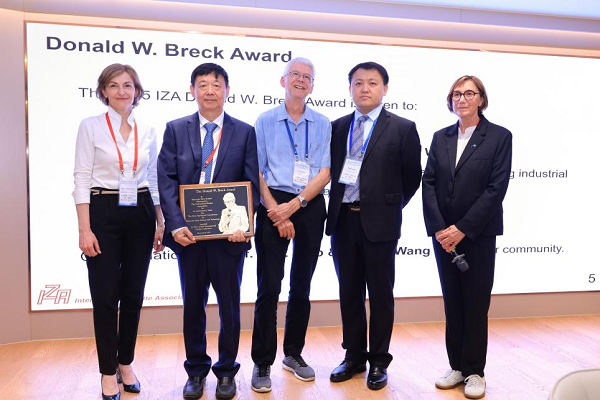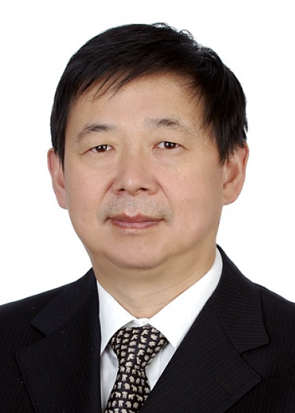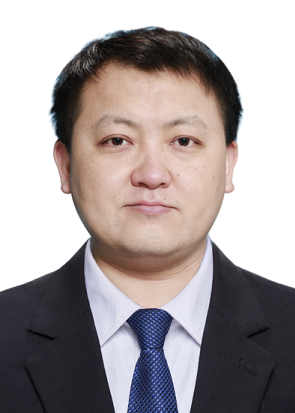Xiao Fengshou and Wang Liang Receive the Donald W. Breck Award from the International Zeolite Association
Release Time:2025-07-18
On July 17, 2025, the 21st International Zeolite Conference was ceremonially held in Dalian, China. Dr. Xiao Fengshou and Dr. Wang Liang, Senior Research Fellows of the Shanxi Institute, Huairou Laboratory, were jointly honored with the 2025 Donald W. Breck Award, the highest distinction presented by the International Zeolite Association (IZA), in recognition of their innovative research in molecular sieve catalytic materials.

Established in 1983 by the International Zeolite Association, the Donald W. Breck Award is presented once every three years to recognize scientists who have made outstanding contributions to the creation and functional development of molecular sieves. This marks the first time in the award’s 42-year history that Chinese scientists have received the honor without international collaboration, highlighting the country’s growing international influence in molecular sieve research.
Molecular sieves, a crucial class of porous catalytic materials, play an essential role in catalysis, separation, and adsorption processes, and are considered core materials in the modern chemical industry. Dr. Xiao’s team has long focused on the development of molecular sieve catalytic materials and has achieved a series of breakthroughs in the efficient conversion of low-carbon molecules. Their research has been published in top-tier journals such as Science, and their catalytic technologies have been successfully applied in industrial settings. This award not only affirms the team’s innovative scientific capabilities on the global stage but also provides new impetus for the continued development of molecular sieve science.
Awardee Profiles

Dr. Xiao Fengshou is a Distinguished Professor and PhD supervisor at Zhejiang University. He currently serves as Vice President of the Asia–Pacific Association of Catalysis Societies (APACS), Vice President of the International Zeolite Association (IZA), and Associate Editor of Industrial & Engineering Chemistry Research. Over the years, he has received numerous prestigious awards, including the Thomson Scientific Research Fronts Award, the First Prize of the Zhejiang Provincial Natural Science Award, the First Prize of the Zhejiang Provincial Invention Award, the Second Prize of the Ministry of Education’s Natural Science Award, and the 3rd China Molecular Sieve Achievement Award.
Dr. Xiao’s primary research interests lie in the green synthesis of zeolitic molecular sieves and the development of zeolite catalysts for energy and environmental applications. As corresponding author, he has published over 500 peer-reviewed articles in international journals such as Science, Nature Catalysis, Nature Nanotechnology, Chemical Science, Journal of the American Chemical Society, and Angewandte Chemie International Edition, with over 35,000 citations and an H-index of 99. He also holds more than 190 authorized patents, and has delivered over 80 plenary and keynote lectures at major conferences around the world.

Dr. Wang Liang is a Senior Research Fellow at the Shanxi Institute of the Huairou Laboratory, a Zhejiang University “Hundred Talents Program” Researcher, and a PhD supervisor. His research focuses on porous catalytic materials and their applications in carbon resource conversion and fine chemical synthesis. As corresponding or first author, he has published over 100 SCI-indexed papers, including in Science, Nature Catalysis, Nature Nanotechnology, Journal of the American Chemical Society, Nature Communications, Angewandte Chemie, and ACS Catalysis.
He has received several honors, including the Young Scientist Award of the International Congress on Catalysis, the China Catalysis Rising Star Award, and the Young Chemist Award of the Chinese Chemical Society. He has also been supported by the Excellent Young Scientist Fund of the National Natural Science Foundation of China, and the Distinguished Young Scientist Fund of the Zhejiang Provincial Natural Science Foundation.




